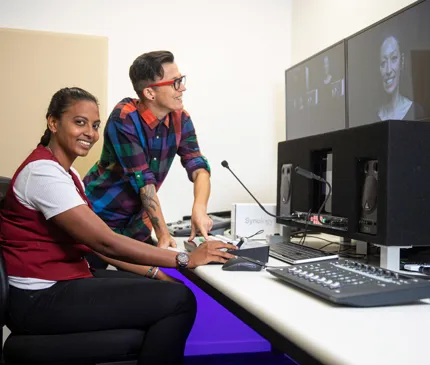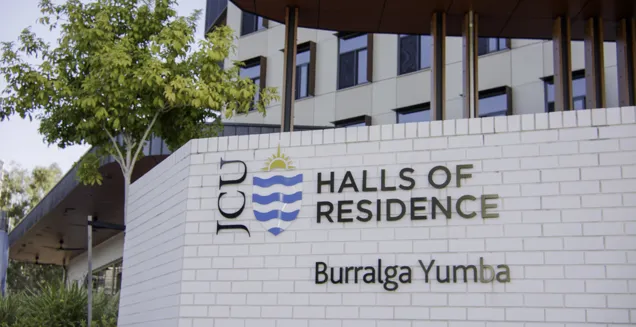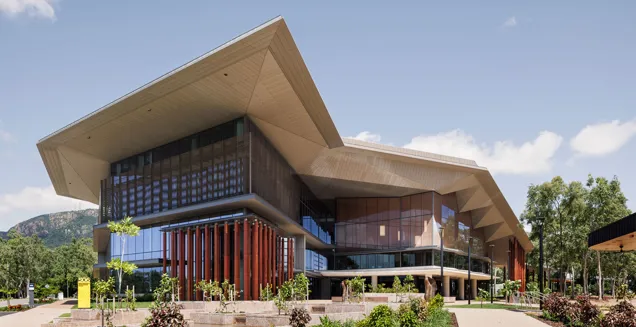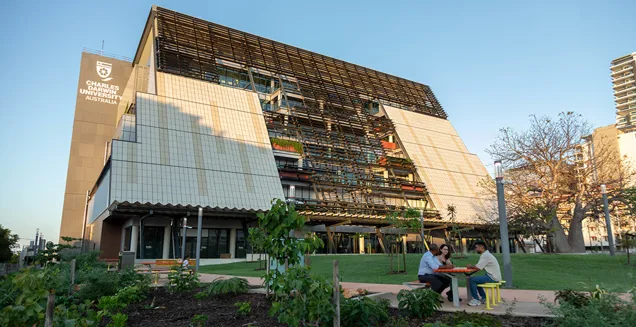Digital Transformation and Supporting Infrastructure
Explore how NAIF's $76 million investment supports CQUniversity's Digital Transformation and supporting infrastructure, enhancing campuses and remote learning through digital infrastructure.
July 2020
Social Infrastructure
Townsville, Mackay, Rockhampton, Emerald, Cairns, Gladstone, Charters Towers, Broome and Karratha.

NAIF's loan of up to $76 million was made available to fund a package of capital expenditure programs at CQUniversity (CQU) over two years.
About CQUniversity
Originally founded in Rockhampton in 1967 as the Queensland Institute of Technology (QIT) Capricornia, CQUniversity Australia was granted full university status in 1992 and now has more than 30,000 students studying online and on-campus across Australia.
CQUniversity covers a wide geographical footprint, with campuses and sites located in Townsville, Mackay, Rockhampton, Emerald, Cairns, Gladstone, Charters Towers, Broome, and Karratha. This extensive presence enables the university to serve students across northern Australia, including those in rural and remote communities.
The university offers a range of education pathways for tertiary and vocational qualifications. Students can pursue undergraduate and postgraduate degrees in fields such as business, education, engineering, health sciences, information technology, and the creative arts.
In addition to traditional academic programs, CQUniversity delivers vocational education and training (VET) courses, professional development, and research opportunities.
Project Overview
NAIF’s support funded new construction works, upgrades and refurbishments across university campuses in northern Australia, along with major digital improvements to enhance the delivery of remote learning. Physical campus upgrades were delivered at sites including Rockhampton, Townsville, Mackay, Emerald, Cairns, Gladstone, Bundaberg, Charters Towers, Broome and Karratha. These works included refurbishments, asset maintenance and new construction designed to strengthen educational and student support facilities.
Alongside this, digital transformation and platform enhancements were delivered from Rockhampton. New and upgraded digital platforms were introduced to improve online learning, student experience and remote delivery, while core systems such as student administration, finance and human capital management were enhanced. Investments also expanded enterprise data analytics through the DataSmart warehouse, refreshed course delivery technologies with modern teaching labs and hardware replacements, and strengthened cybersecurity. Additional improvements included automation of operations and upgrades to international student recruitment platforms, such as StudyLink.
How We Helped
NAIF support for the capital and infrastructure programs at CQUniversity ensured the university was able to proceed with planned capital works and digital upgrades and continue to deliver quality higher education courses to students around the country, particularly in remote centres across northern Australia.
NAIF stepped in with financial assistance to preserve the CQU capital expenditure program after the university projected a shortfall in future revenue caused by a sudden drop in international students due to the COVID-19 pandemic.
NAIF’s support was crucial to progressing this work, safeguarding jobs and ensuring the university’s capability to deliver education to regional and remote students without disruption.
Public Benefit
The university forecasts that maintaining its plans for capital expenditure will contribute to supporting up to 187 direct and 487 indirect jobs within the northern Australia region over a two-year period, with a further 200 indirect jobs saved. Total public benefit over the two years is forecast at $72 million. NAIF’s support will enhance the university's service for students to gain tertiary or vocational qualifications in the region, rather than having to move to southern capitals to study.
CQUniversity is intent on thriving, not just surviving, after the impacts of COVID-19, so we need to continue to invest, to keep delivering world-class education, training and research for years to come.
That’s why we’re leveraging the NAIF loan to invest in capital works and digital infrastructure that will improve the student experience, enhance the quality of teaching and learning, and create new economic opportunities for the regions we serve.
This is an exciting time to be a regional university and I thank the Commonwealth for their support, as we continue to build a university that will help propel the future prosperity of northern Australia.”
Professor Nick Klomp
Vice-Chancellor and President, CQUniversity
Related Links
Indigenous Engagement
- The Darumbal people
CQUniversity operates across a vast footprint in Queensland including in Rockhampton, Bundaberg, Gladstone, Mackay, Cairns, Townsville, Emerald, and Brisbane. These campuses are situated on the traditional lands of various Traditional Owner groups including the Darumbal people in Rockhampton, the Yuwi people in Mackay, the Gimuy Walubara Yidinji people in Cairns, the Turrbal and Jagera peoples in Brisbane and the Bailai, Gooreng Gooreng, Gurang and Taribelang Bunda peoples in Bundaberg and Gladstone.
Indigenous Engagement Strategy Commitments
- Continued deep engagement with First Nations communities through the development and implementation of a university-wide Indigenous Engagement Strategy (IES) including cultural immersion programs, formal partnerships with Traditional Owner groups, and expanded cultural events across campuses.
- An objective to increase First Nations staff to 5.5 per cent, create identified roles, strengthen recruitment and retention strategies, appoint Indigenous representatives to senior roles and governance structures, and develop a new First Nations Workforce Strategy for 2026–2030.
- An increase in First Nations procurement through strategies including Supply Nation membership, targeted training, system reforms, and increasing spend by at least 25 per cent annually, while also establishing commercial relationships with at least two Indigenous suppliers.
- The delivery of a suite of Cultural Awareness, Safety, and Competency training programs for staff and students, implementing a Cultural Competency Framework (2023–2028), and ensuring cultural protocols and Acknowledgement/Welcome to Country practices are embedded across operations.
- A target of achieving parity in student outcomes, strengthening research capability and partnerships, increasing research income and outputs, and growing the number of First Nations RHD graduates through initiatives like the Jilbay RHD Academy.
- In 2025, CQU, launched the Stretch Reconciliation Action Plan (RAP) with elevated targets including 5.5 per cent First Nations employment by 2028 and 25 per cent annual increase in First Nations procurement, exceeding existing NAIF IES benchmarks.
Key deliverables are to be embedded into divisional and staff performance plans, with quarterly reporting to senior leadership to monitor progress and ensure alignment with reconciliation, equity, and anti-racism goals.
Indigenous Engagement Strategy Outcomes
- In 2021, appointed the First Nations Employment Coordinator and launched several strategies, including the First Nations Workforce Strategy and Cultural Competency Framework and procured over $550,000 with First Nations businesses and achieving 2 per cent First Nations employment (up from 1.5 per cent).
- In 2022, CQU launched the Innovate RAP, expanded First Nations supplier registrations to 84, and increased procurement to $700,000. First Nations employment rose to 2.2 per cent, and new tools like the Industry Engagement Guide were released to strengthen partnerships.
- In 2023, CQU achieved 2.5 per cent First Nations employment and launched the First Nations Cross-Cultural Competency micro-credential. The Jilbay RHD Academy grew to 16 students, and the Woorabinda Education Hub model began expansion discussions with Lockhart River and Yarrabah communities.
- In 2024, First Nations employment reached 3.5 per cent, with a headcount of 98 and a new Director of Indigenous Engagement appointed. First Nations procurement reached over $740,000 (up by almost 40 per cent) with 27 new suppliers registered.


